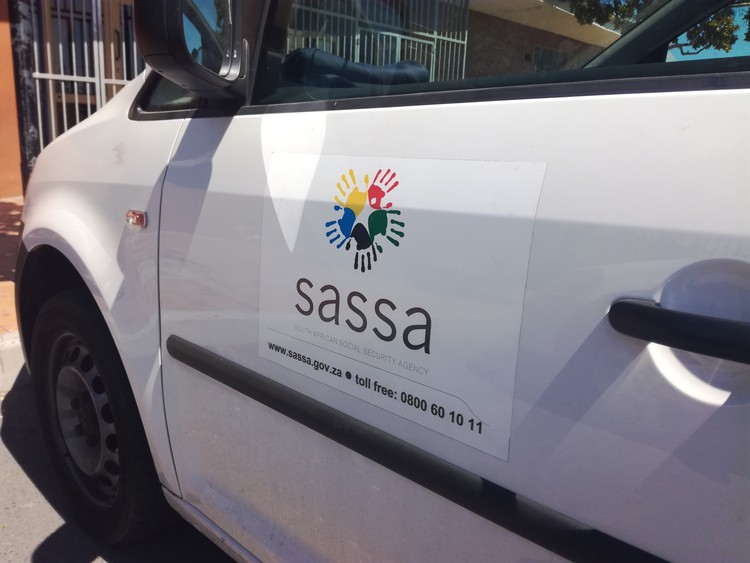SASSA backtracks on commitment to Constitutional Court
Social grants agency strikes deal with CPS for two years, not one
The SA Social Security Agency (SASSA) has struck a two-year deal with Cash Paymaster Services (CPS) for the payment of millions of social grants, according to Serge Belamant, chief executive of CPS parent company Net1. This is in spite of SASSA’s commitment to the Constitutional Court that the new contract would not be longer than a year.
Belamant told GroundUp today that the deal was done.
He said the contract was for two years at a fixed price based on the inflation rate.
But in papers submitted last week to the Constitutional Court, SASSA asked for permission to sign a new contract with CPS for a year. “SASSA seeks to engage CPS for a year to continue paying social grants”, said SASSA CEO Thokozani Magwaza in the court application. “SASSA requires a period of one year to be in a position where it will make payments of social grants utilising the National Payment System and in isolated selected areas the services of a cash service provider.”
The papers were withdrawn the same day, with DG of Social Development Zane Dangor telling Parliament last week that the papers would be filed again after changes had been made.
Dangor has since resigned, just three months after taking up the position.
At the current year-on-year inflation rate of 6.6 % in January, the administration fee paid to CPS would go up from R16.44 per beneficiary to R17.52. According to the papers filed to the court by Magwaza, current fees to CPS for the payment of grants amount to R2.236 billion. A 6.6% increase would lift this to R2.366 billion.
SASSA had budgeted for R2.6 billion for the social grants payment contract in the 2017-18 year, Magwaza said.
Magwaza is currently on sick leave.
When contacted by GroundUp, SASSA spokesperson Kgomoco Diseko confirmed that a new contract would be signed, but would not give further details.
SASSA is expected to appear before two Parliamentary committees this week to give an update on the payment of social grants after 1 April 2017, with civil society groups and Cosatu calling for the resignation of Social Development minister Bathabile Dlamini.
The five-year contract with CPS, which began in February 2012, was declared invalid by the Court in 2014, but the Court suspended the invalidity so that grants could continue to be paid.
SASSA submitted a plan to the Constitutional Court in 2014 to take over the payment of grants itself when the CPS contract ends on 31 March 2017. But in February 2017, SASSA acknowledged its failure to meet this deadline.
At the last minute, the Agency suggested extending its contract with CPS as the “safest option” to ensure beneficiaries are paid on 1 April. National Treasury and Minister of Finance Pravin Gordhan have warned SASSA that unless it is approved by the Constitutional Court, extending the contract with CPS would be unlawful. In a letter to Magwaza on 8 February filed with the SASSA court papers, the Treasury’s Solly Tshitangano said the Treasury did not support the extension of the invalid contract and would only do so if the Constitutional Court extended the suspension of its invalidity beyond 31 March.
In response, SASSA official Zodwa Mvulane last week said the new contract would be negotiated as an “emergency procurement” under the Public Finance Management Act.
The Black Sash has also filed an application to the Constitutional Court, asking the Court to take back its oversight role and to rule that Dlamini must safeguard beneficiaries against unauthorised deductions when renegotiating a new contract with CPS. On Monday, Black Sash announced that the Democratic Alliance had joined their application.
According to a directive from the Court on Friday 3 March, opposing parties had until close of business that day to oppose the application, but a Court clerk told GroundUp that one of the parties had asked for an extension until close of business on Monday. The matter will be heard on 15 March.
Dlamini held a press briefing on Sunday where she again assured the public that there would be no disruptions to grant payments on 1 April. Dlamini added that the payment of R140 billion a year for grants was essential in reducing inequality in South Africa. She said that SASSA’s “transition” included having its own payment system in place by April 2019. “As has been the case in the past, no one will go unpaid,” she said.
Support independent journalism
Donate using Payfast

Don't miss out on the latest news
We respect your privacy, and promise we won't spam you.
Next: Philippi High students demand promised new school
Previous: Disabled 72-year-old trapped alone in her shack all day
© 2017 GroundUp. 
This article is licensed under a Creative Commons Attribution-NoDerivatives 4.0 International License.
You may republish this article, so long as you credit the authors and GroundUp, and do not change the text. Please include a link back to the original article.

